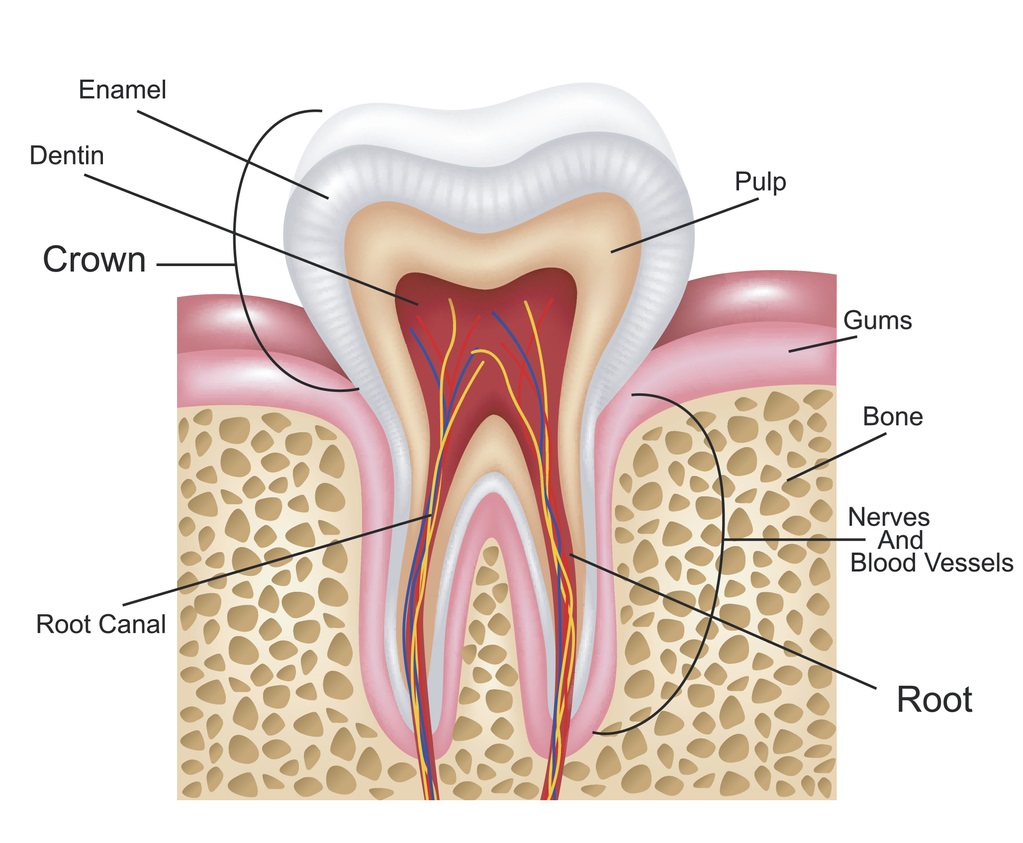When Do You Need a Root Canal?
The roots of your teeth have narrow openings called canals containing blood vessels and nerve fibers that provide nutrition and sensation to your teeth. These vessels and nerves play a vital role in the health of your teeth, and if decayed or infected, can start to cause you pain. A root canal is a dental treatment used to repair a diseased tooth by removing the pulp inside of the tooth and filling the canal to seal the space. This procedure can help save your teeth for a lifetime.1
Root canals are performed by a general dentist or a dental specialist known as an endodontist. If you are experiencing sensitivity or pain, then you should first seek treatment from your dentist who will recommend the best course of action, which may involve a root canal procedure.2
What Causes You to Need a Root Canal?
Your dentist may recommend a root canal when your tooth shows signs of infection or significant pulpal nerve damage. When a tooth is cracked or has a significant cavity, bacteria is able to enter the pulp, and if left untreated, can lead to serious infection, bone loss, or the loss of the tooth itself.
The most common causes of pulpal nerve damage are:3
- Trauma to the tooth that leads to nerve tissue damage, for example, a sport related injury to the mouth.
- Physical irritation caused by deep tooth decay (a cavity) that reaches down to the nerve or through deep fillings. When this happens, harmful bacteria can reach the pulp and nerve, leading to infection and decay.
- A cracked or fractured tooth that involves the pulp.
Signs & Symptoms of Pulpal Damage
The signs and symptoms of pulpal damage can differ from person to person, but in most common cases, individuals experience:3
- Tooth pain while chewing
- Oversensitivity of the teeth with cold or hot drinks
- Gum or facial swelling
- Discoloration or graying of the tooth
- Swelling and tenderness of nearby gums
- Drainage from the tooth
Sometimes there are no symptoms present. Scheduling regular preventative visits is important for this reason as your dentist will be able to identify any potential issues.
Root Canal Procedure & Treatment Options
A root canal can often be a simple, routine procedure used to relieve dental pain and preserve the integrity of your tooth.
Before the procedure, your dentist will give you anesthetics to numb the area and prevent pain. They will then carefully remove the infected area inside the tooth canal, clean, and prepare the root canal. A material is then placed to seal the canal and a restoration is placed to cover the opening of the top of your tooth.
In most cases, a tooth that has undergone a root canal procedure will have results that last a lifetime without problems. However, problems such as tooth pain or infection can arise. In this case, you should see your dentist who will guide you through next steps.2
When to Contact Your Dentist
Contact your dentist immediately if you have persistent tooth pain or swelling in the mouth or gums. Root canals are often recommended when the pain or swelling is due to an infection deep within a tooth. If left untreated, this type of infection can cause tooth abscess, pulp death, bone loss, and loss of the tooth itself.
Conclusion
There are a lot of misconceptions about root canals, one of which being that the treatment is painful. The goal of the dentist operating the procedure is never to cause you pain, but to save your tooth and get you back on track to optimal dental health. Modern technology and techniques have helped root canals become relatively comfortable and effective treatments.
A root canal treatment helps maintain your natural smile, relieve pain from chewing so you can continue to enjoy the foods you love, and lessen the need for ongoing dental work.
Additional Resources
Looking for more information? Brush up on other oral health conditions.
- Root canal overview
- Root canal cost
- Reasons for root canal
- Step-by-step guide to the root canal procedure
- Benefits of root canal treatment
Sources:
1 “Root Canals." American Association of Endodontists. http://www.aae.org/patients/treatments-and-procedures/root-canals/root-canals.aspx
2 “Endodontic Surgery.” American Association of Endodontists. https://www.aae.org/patients/root-canal-treatment/endodontic-treatment-options/endodontic-surgery/
3 “Root Canals.” Mouth Healthy, American Dental Association. http://www.mouthhealthy.org/en/az-topics/r/root-canals.





